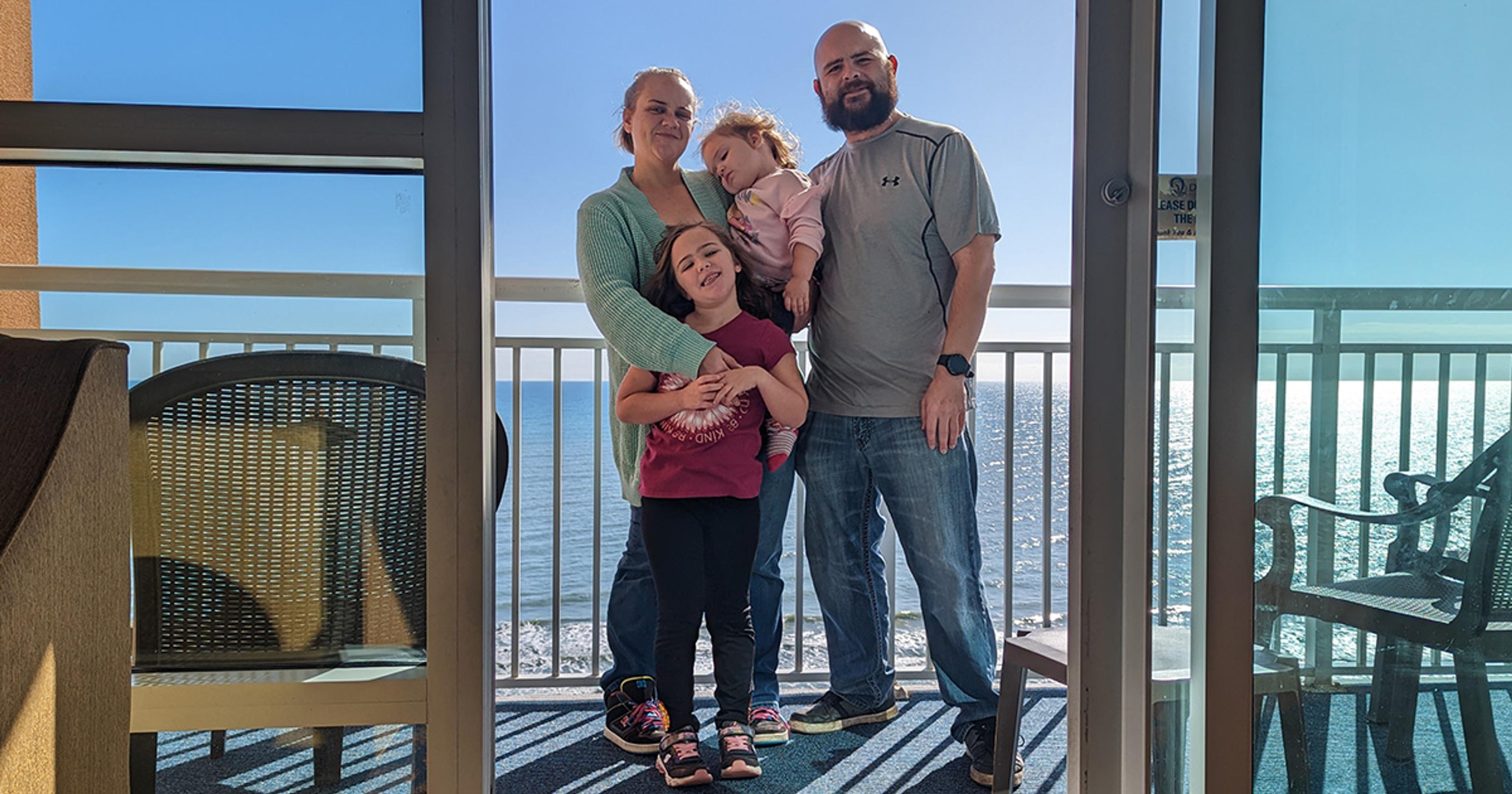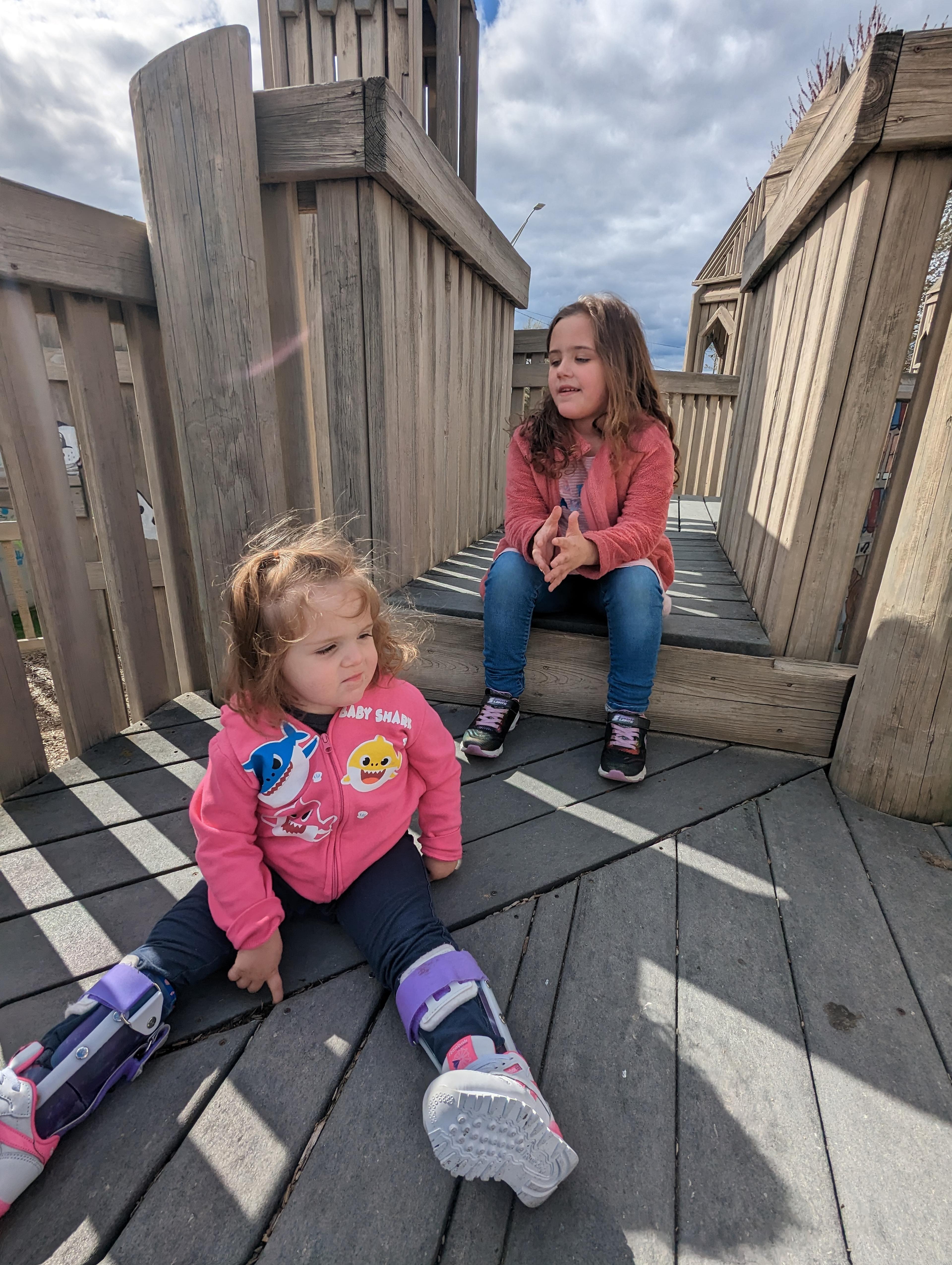The Small Moments Mean More: Roseville Mom Recognizes the Beauty in Raising Child with Hypotonic Cerebral Palsy
Jake Newby
| 5 min read

Any parent of a special needs child will tell you the rewards associated with raising a child with a disability far exceed the challenges.
This sentiment rings true for Roseville’s Amanda Smith, whose 2-year-old daughter, MacKenzie, was diagnosed with a rare form of cerebral palsy as an infant. MacKenzie suffers from hypotonic cerebral palsy, a condition characterized by decreased muscle tone and muscles that are too relaxed to adequately perform everyday functions. It leads to poor coordination and the appearance of “floppy” muscles. People with hypotonic cerebral palsy often have trouble standing, walking and remaining stable. In addition to MacKenzie’s case of hypotonic cerebral palsy – which is caused by damage to the cerebellum – she also has autism.
Smith was a mom before giving birth to MacKenzie, having already raised 7-year-old Abigail. So, the young mother was able to connect the dots when MacKenzie began missing early milestones like rolling over, sitting up and crawling.
“My mom instincts kicked in and I noticed that she wasn’t meeting milestones,” said Smith, a Blue Cross Complete member. “At the same time, I was also noticing signs of autism. So, I got those two diagnoses at the same time when she was 14 months old. At that point she was not crawling, she was not walking. She couldn’t even stand up on her own.”

MacKenzie’s case of cerebral palsy is relatively mild compared to more conventional cases of the condition, in that MacKenzie benefits from better overall movement.
“She learned to walk right before her second birthday,” Smith said. “That was a little sooner than her main neurologist actually thought. We got lucky; she beat a couple milestones there. It affects mainly her walking and her legs.”
MacKenzie needs to wear supportive braces on her legs and ankles.
“Her hypotonia causes her legs and feet to move in a way they shouldn’t and fall out in a way they shouldn’t,” Smith said. “Without them she is very wobbly. She’s very weak. She needs frequent breaks when walking and moving and running and playing.”
Forecasting the future: How MacKenzie’s hypotonic cerebral palsy is expected to evolve
MacKenzie is currently enrolled in an early intervention system designed to help infants and toddlers with disabilities receive the educational services they need to promote development.
“(The program) is actually going to work on discharging her from there before her third birthday and send in a specialist from her county schools, who will talk to me about transitioning her into a preschool,” Smith said.
Smith added that MacKenzie will be enrolled in an individualized education program (IEP), so she’ll get a head start in the special education program once she starts school. As MacKenzie grows and develops, her muscle tone is not expected to strengthen, Smith said.
“There will probably never be any improvements to her muscle tone with her hypotonia,” she said. “But the muscles surrounding the legs and where the weakness is, that will eventually start to strengthen. And that’s where we’ve already started to see some improvements with her being able to start to stand and walk. She’s graduated out of her smaller braces that used to go farther up her legs.”

MacKenzie will likely always need leg braces. Smith said she and her fiancé, Craig, have been told that MacKenzie will always need some sort of stroller – and eventually chair – nearby, due to weakness and exhaustion that will likely always factor into her condition.
“We saw our other daughter running around the house at this age, whereas, right now, MacKenzie needs almost 24/7 attention to make sure she isn’t getting hurt,” Smith said. “Not getting hurt or not doing something she shouldn’t do. She’s needs us to assist her in some sort of way.”
Patience pays off: The beauty and rewards of raising a child with special needs
Milestones that may be standard for most children are not taken for granted when you are the parent of a special-needs child. Smith said she and Craig Badgerow, have been overjoyed at each of MacKenzie’s milestones; every time she’s rolled over, sat up, or walked, they’ve celebrated. They recognize these moments can’t be expected the same way they can for a child living without a disability.

“One of the greatest things about watching her is seeing her improvements. Witnessing those small moments that are small to a normal parent but large to us,” Smith said. “Standing for the first time, walking. Those were all very delayed for us. We almost had no hope that we’d ever see them. It was exciting and we were happy to see Abigail hit those milestones, but when MacKenzie hit them? It really hit us different as a mom and dad.”
Smith is a member of a private Facebook group that brings more than 500 Michiganders affected by cerebral palsy together. This network of parents, caregivers and anyone affected by the condition has served as a support system for Smith, who likes to reciprocate that support. One piece of advice she finds herself relaying to parents often is to stay strong when you receive that unfortunate diagnosis. Because if and when their children defy the expectations set upon them by doctors, the joy you feel as parents will be indescribable.
“Getting that diagnosis, it hurts. It’s heartbreaking. But it’s not the end of the world,” Smith said. “It’s not something we try to harp on too much. Her diagnoses don’t define her, they don’t make her, and they don’t make our family, and they won’t make your family if you go through it. It does get better. You may feel like your child won’t get there, they won’t hit this milestone or that milestone. When there’s something they want to accomplish, they will find a way to make that moment happen, for you and for them.”
Read other member stories:
Photo credit: Amanda Smith





